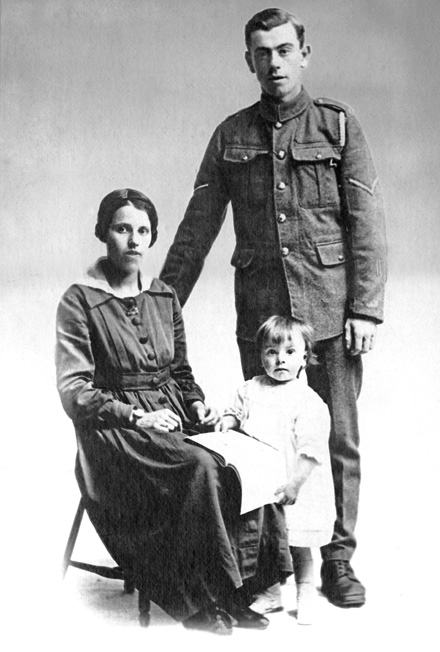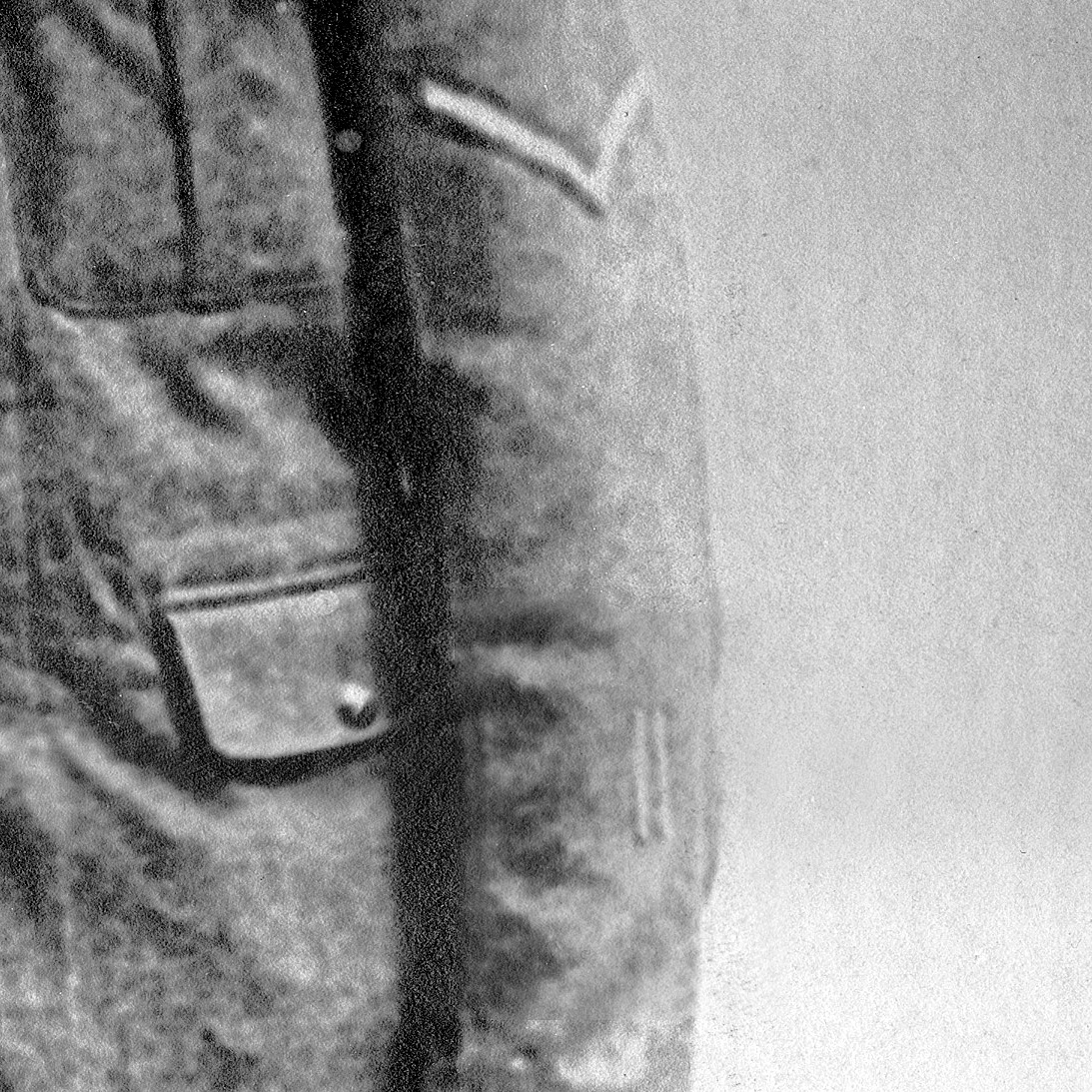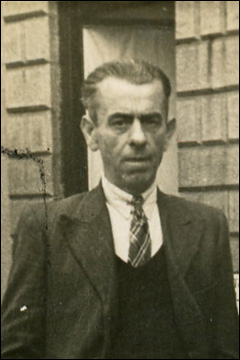Born and Bred
A Yorkshire Family
George Percival Berryman
George's Story
When the "Great War" started in August 1914, George was living and working in Guernsey as a "General Labourer". He was also a member of the "Guernsey Militia" based at Castle Cornet in St. Peter Port where he was involved in Home Defence Duties.
Towards the end of November 1915 he was enlisted in the British Army where he served in the 67th Battery of the Royal Field Artillery, a horse artillery unit. He landed in France in early 1916 and took part in the Battle of the Somme in the July of that year. Throughout his service in France he was wounded twice, once due to gas (in 1918), but luckily he survived, and for many years after the war suffered from the after effects of Mustard Gas.

His uniform shows him with the rank of bombardier, what can't be seen clearly from the small photo shown, but can be seen on the original, are two parallel white stripes on his left sleeve near the cuff. These indicate he was wounded twice in action.

At the start of the Second World War George was serving as an Air Raid Warden in Guernsey and living with his family at 28 Les Canichers, St.Peter Port. Following the surrender of Paris to the Germany Army on the 14th of June 1940, the British government announced that the Channel Islands were of no strategic importance and would not be defended.
Towards the end of June, George and his family had managed to secure places aboard a boat carrying evacuees to England, however, due to his role as an Air Raid Warden, George was not allowed to leave the island. Finally, on the morning of the 29th of June, the date of departure, all members of the ARP were released from their duties and could thus leave the island if they wished. George rushed home to gather up a few possessions and met his family at the docks in time to board the St. Julien, which was to be the last boat to leave Guernsey, just before the Germans landed and occupied the island on the following day.
When the war finally ended they returned to Guernsey in December 1945. People had been returning to Guernsey since August of that year, but for some reason they had failed to hear about these return trips until much later. The ship they sailed on was called the Hantonia and it was packed with other families returning home.
As they were one of the last families to arrive on the ship they found themselves in one of the storage holds. When they got down there they saw a horse tied up in a stall and several sailors lashing a box to one of the supports. Curious, they asked what this was and were told that it was the coffin of a man who had died in England but wanted to be buried in Guernsey.
Amy, George's wife, was very superstitious and said that they were in for a bad trip. This proved to be true as they set sail in one of the worst storms in years. Soon, water was sloshing all over the deck of the hold and half way up to their knees.
Along with their other luggage they had taken with them a small suitcase filled with food items that they had carefully saved up for their return to Guernsey. However, this was now floating all over the place. One roll of the ship sent it under the horse's stall, which came down on the suitcase when the ship rolled the other way. This caused the suitcase to spring open and sea water to enter into the case and toss all their carefully saved rations onto the flooded deck, ruining everything.
This was a disaster, those rations would have been invaluable when they finally managed to land in Guernsey as the winter of 1944-45 had been very hard for the islanders with food being in short supply. Rations were reduced for civilians, until by the end of 1944, they were at a slow starvation level.
The conditions in the storage hold, that they were experiencing, were now so bad that they were eventually, and much to their very great relief, allowed up to a higher deck. All of them were now suffering from sea sickness and reaching land couldn't come soon enough for them.
However, the sea was so rough that the ship was unable to dock at St. Peter Port, so it tried for Jersey and was once more unable to dock. The ship then tried to dock in France but the weather was against them again, finally the Captain decided to head back for Guernsey where it eventually managed to dock in St. Peter Port.
George had various jobs during his time in England, but the last one was as a lithographic machineman, working for John Waddingintons in Leeds (which now no longer exists). Family history also tells of him working as a doorman / cleaner at the City Varieties in Leeds during the time when they put on burlesque shows. It was here that he saw many of the famous strip acts of the time, something his wife didn't approve of and she regularly called him "a dirty old man".

